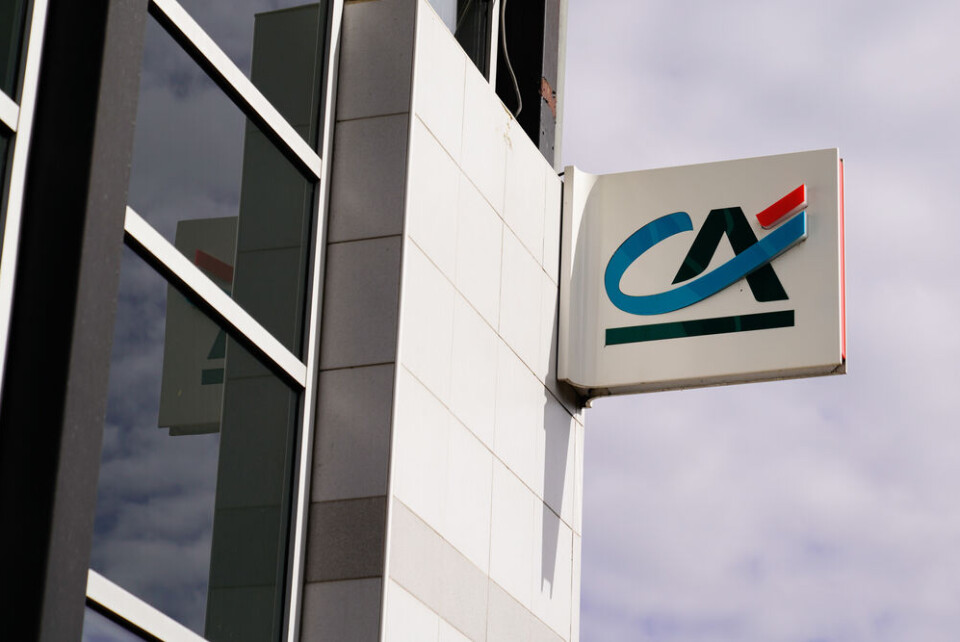-
More than 5,000 French communes use AI to identify poor rubbish sorting
Badly-sorted rubbish can cost millions so communes are turning to high-tech solutions
-
Tax on well-off retirees under consideration for 2026 budget
‘Nothing is off the table’ when it comes to finding €40 billion in savings says Labour Minister
-
Nice airport records passenger boom as tourists flock to city
Airport figures exceeded the pre-Covid record last year, with US visitors significant contributors
French bank imposes withdrawal fees for UK cards post-Brexit
The UK financial regulator had already warned that cash machine withdrawals could become more expensive for UK cardholders in Europe after the transition period

Several Connexion readers have reported that Crédit Agricole ATMs are now adding a €5 charge for withdrawals using UK cards, a fee which was predicted as a possible consequence of Brexit.
Just before the Brexit transition period ended, the UK’s financial regulator the Financial Conduct Authority warned that cash withdrawals in Europe “may be more expensive” after the country left the EU.
However, it added that: “We expect firms to let you know about any changes in charges that affect products you have.”
UK banks normally charge non-sterling transaction fees for customers making purchases or withdrawing money abroad, but these were in place before Brexit happened.
The additional cash machine fees come as other Crédit Agricole customers from different regions of France also noticed flat fees being added to money transfers coming from the UK.
Read more:€36 French bank fees for UK pension transfers causes confusion
Read more:Brexit loophole confirmed as cause of new UK-France Sepa bank fees
€5 per ATM withdrawal
The charges will affect British visitors to France who have no French account and use their UK cards in France, but in some cases second-home owners or British residents in France who have accounts in both countries are affected.
Deborah Elliot, who owns a second home in Indre-et-Loire and has a Crédit Agricole account for paying its bills, was charged for withdrawing money from her local Crédit Agricole Touraine Poitou branch using her UK card.
“We bank with Santander in the UK, which doesn't have any fees for withdrawing euros on our UK debit cards, and which also gives a good exchange rate,” she said.
“So we often top up our French bank account by taking out cash with the UK card over a few days and then paying it into the French account, as this avoids our UK bank’s flat fee of £25 per international transfer.
“For large sums for building projects for example, this charge is more easily absorbed, but when transferring small sums of use a few hundred euros these fees add up and in effect reduce the exchange rate.”
As a result, she was “not at all pleased to be faced with a €5 fee” when carrying out their usual withdrawals in February this year, she said.
When she requested the cash, the machine asked Ms Elliot if she would accept the extra charge, as banks are required to do.
“We then tried a local Banque Populaire Val de France, where there was no such fee,” Ms Elliot added.
Other readers have noticed similar charges, including from ATMs belonging to Crédit Agricole Charente-Maritime Deux-Sèvres. Another Briton who banks with Crédit Agricole’s Britline service reported charges for withdrawals at a local branch.
Another reader reported having been charged at a Crédit Agricole branch in Brittany, but not when they withdrew money from a Crédit Mutuel cash machine.
The Connexion contacted Crédit Agricole and Britline for further information on their reasons for introducing the fees.
A Crédit Agricole spokesperson said that they were looking into the issue, but added that: “Each regional bank of Crédit Agricole is an autonomous entity and decides its own charges policy.”
We also asked BNP Paribas, Crédit Mutuel and Société Générale if they impose charges on such ATM withdrawals or plan to in the future.
However, we have only received a response from Société Générale, which stated that withdrawals from its cash machines are free for foreign cardholders and that there were no plans to change this.
Flat fees for international transfers with Crédit Agricole
Connexion readers who bank with Crédit Agricole in some areas of France have also reported a new €18 flat fee on transfers coming from the UK.
These same payments did not have fees attached prior to Brexit, and in many cases, have occurred even when Sepa transfers were reportedly used.
Within the EU Sepa transfers incur no more charges than domestic transfers, however the Fédération Bancaire Française told The Connexion that despite the UK having retained the ability to use Sepa transfers, transfers from the country are no longer protected by this rule.
The European Consumer Centre, which advises people with cross-border consumer issues in Europe, took a different view.
Its director for France, Bianca Shulz, said: "Even though the UK has left the EU, it remains a Sepa member; the rules have therefore not changed with regard to Sepa transfers.
We also asked Crédit Agricole about this issue, and a spokesperson said: "I can confirm that the commission is different if the country operating the payment is or is not part of the European Economic Area, whether they belong to Sepa or not."
Related stories
Two French banks stop asking health questions on mortgage applications
UK pension firm will not pay out to me in France post-Brexit
























